The Storyline
It was 1975 when the musical film Tommy became a cinematic sensation. A showcase for Hollywood legends, screen stars, and rock royalty, the film also boasted The Who’s lead singer Roger Daltrey in the title role, as well as the band’s other members Pete Townshend, John Entwistle, and Keith Moon.
The much-anticipated musical was based on The Who’s 1969 album of the same name; the album heralded for its experimental approach to storytelling in the form of song, was a showcase for Pete Townshend’s searing, sad, and often insightful lyrics.
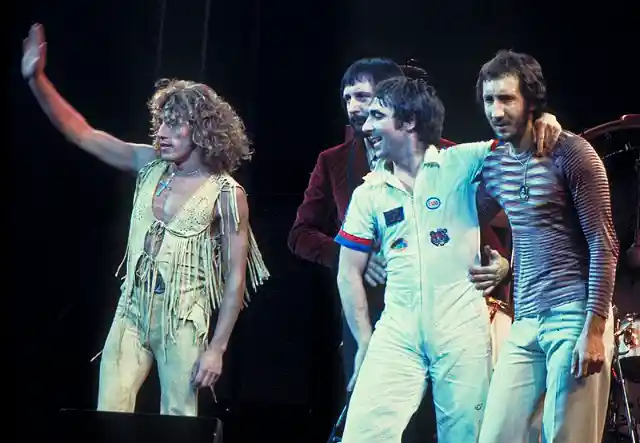
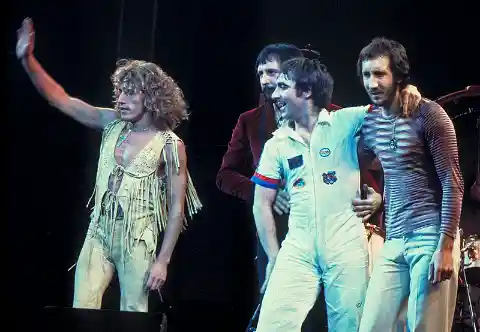
The movie tells the story of Tommy, considered an average child until a traumatic experience throws his life into turmoil. Tommy’s mother, Nora, believing that her husband was killed in World War II, begins a relationship with “Uncle” Frank. Alas, Tommy’s father survives the war and returns home, only to catch his wife and Frank in a romantic embrace. A fight erupts, and he attempts to murder Frank, but Tommy’s father is murdered by Frank instead.
Tommy, who witnesses the brutal scene, suffers an emotional and mental breakdown that renders him blind, deaf, and mute. Despite the losses of sight, hearing, and speech, Tommy goes on to become a pinball wizard and a wealthy world champion, all while becoming inexplicably healed. Not surprisingly, Tommy’s recovery and achievements lend him credence as a cult leader adored by throngs of admirers.
Who’s Who In The Cast: Roger Daltrey | Tommy
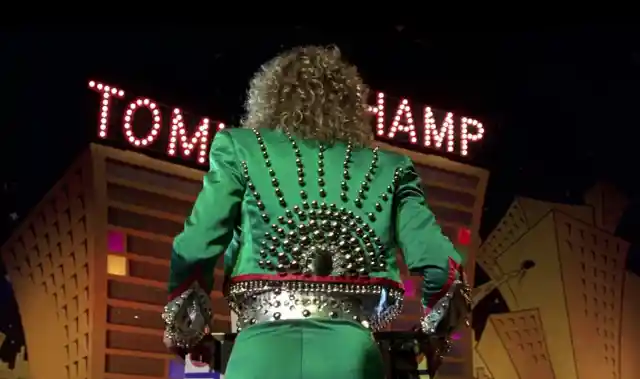
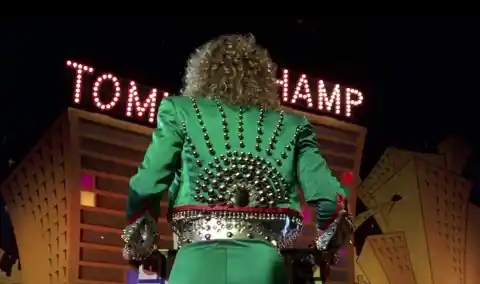
Daltrey, The Who’s lead singer, was determined to bring gravitas and realism to the movie’s title role. Although he studied sign language from a Hampshire vicar, the gesture song that appears to feature sign language was only a parody of signs. Accuracy in other areas of the movie was also cast aside; for example, Daltrey was only three years younger than his on-screen mother, Ann-Margret, and a mere four years younger than his movie stepfather Oliver Reed.
Ann-Margaret | Nora & Oliver Reed | “Uncle” Jack
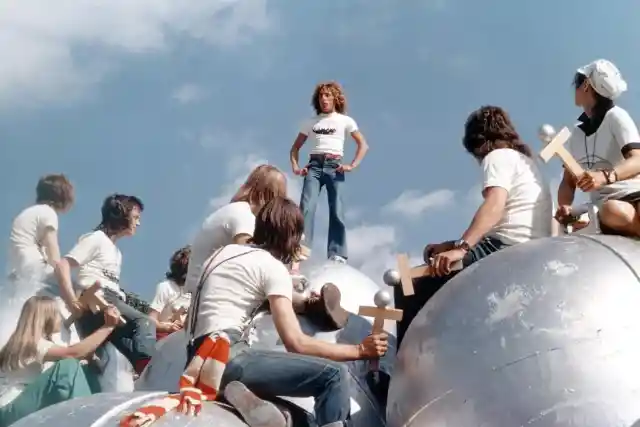
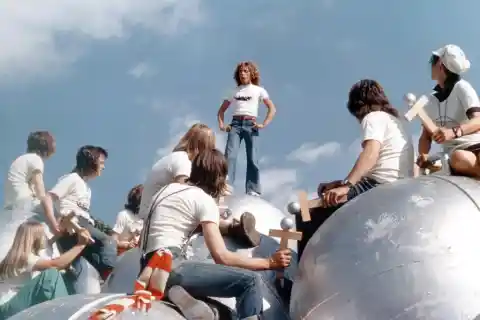
Ann-Margret, an actress regarded as Hollywood royalty and an accomplished singer, played Tommy’s mother, Nora. She recorded her part in the movie in just one eleven-hour session. For the scene where Nora hallucinates and believes that chocolate, beans, and soap are oozing out of the television, she was instructed to portray someone who was having a nervous breakdown; much of the scene was improvised. Her performance as Nora earned her an Oscar nomination and a Golden Globe for Best Actress.
Elton John | Pinball Wizard & Tina Turner | Acid Queen
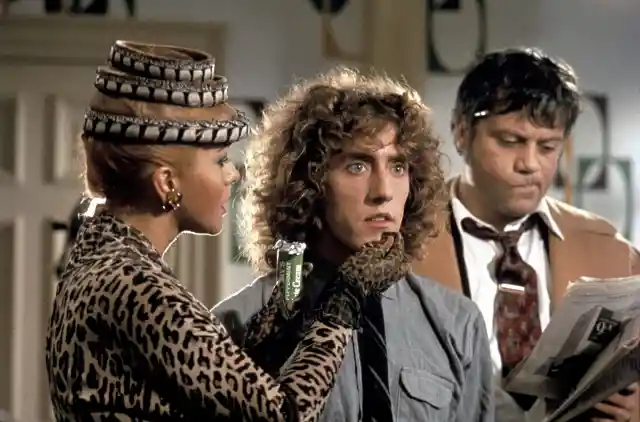
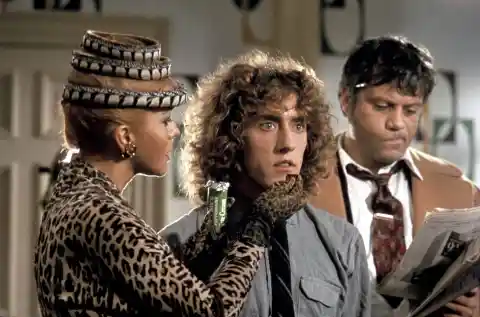
Oliver Reed assumed the role of Frank, Nora’s boyfriend, and Tommy’s stand-in father. Reed had no singing experience, and absolutely no capability for carrying a tune, which meant that issues abounded when it came time to record his songs. All of his numbers in the movie were recorded in very small segments, which only added to the frustration Townshend felt at a non-singer being cast in a singing role.
When initially offered the role of the Pinball Wizard, Elton John rejected it, but he finally accepted the part when it was agreed that he could keep the towering Doc Marten boots that served as a staple of the Pinball Wizard’s wardrobe. The boots, however, were extremely uncomfortable, prompting John to ask that a keyboard be placed directly in front of him, which would help to limit the steps he would need to take during filming.
The Acid Queen, played by Tina Turner, is enlisted to help heal Tommy’s impairments by using LSD.
Eric Clapton | The Preacher
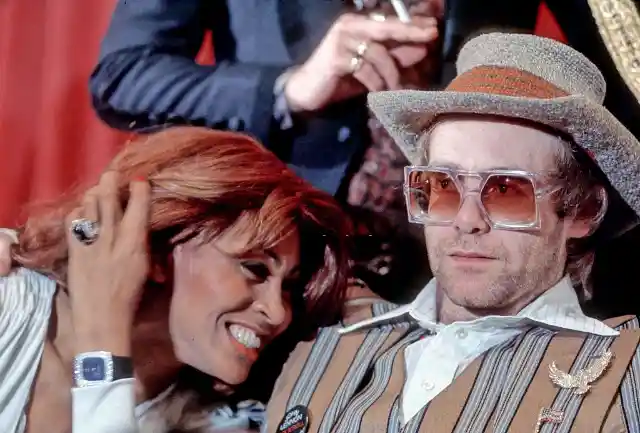
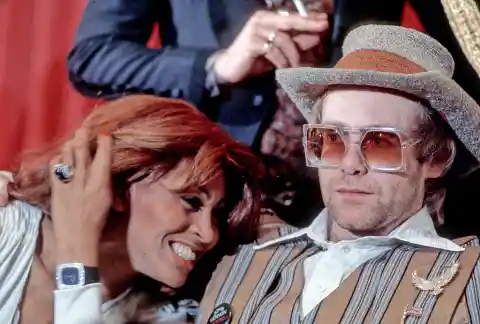
The leader of a Marilyn Monroe cult, The Preacher was played by Eric Clapton, a longtime friend of Townshend. Clapton credits Townshend with helping him to kick his heroin addiction.
Jack Nicholson | The Specialist, Dr. A Quackson
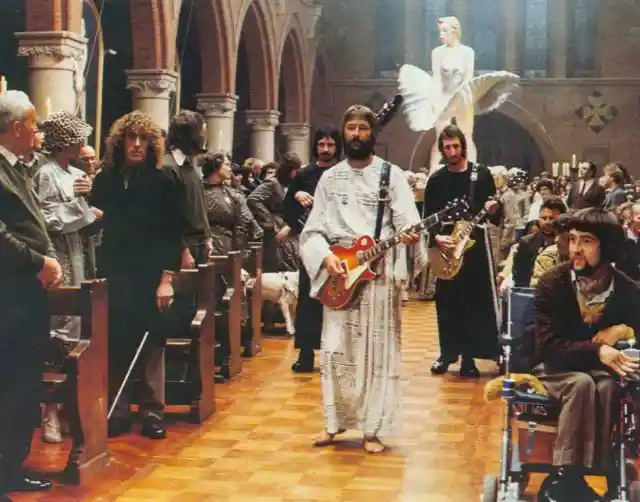
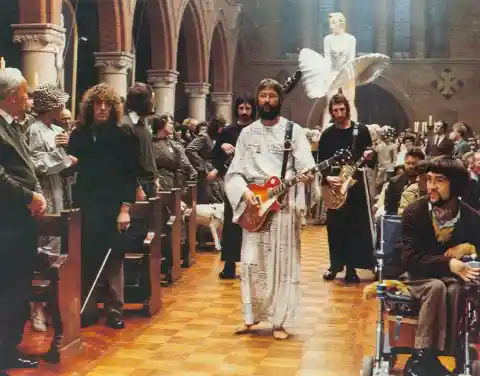
Jack Nicholson was already a Hollywood star and an acting legend when he agreed to appear in Tommy. Nicholson’s casting in the film came about when Christopher Lee, who had already been cast in the movie, was detained in Bangkok while filming The Man With The Golden Gun. Nicholson agreed to take on the part, and although he wasn’t a singer the cast and crew were impressed with his vocalizations. After witnessing Oliver Reed’s painful attempts at singing, Townshend was concerned that Nicholson‘s musical performance would be just as disappointing, but he was pleasantly surprised that Nicholson did, indeed, have some musical chops.